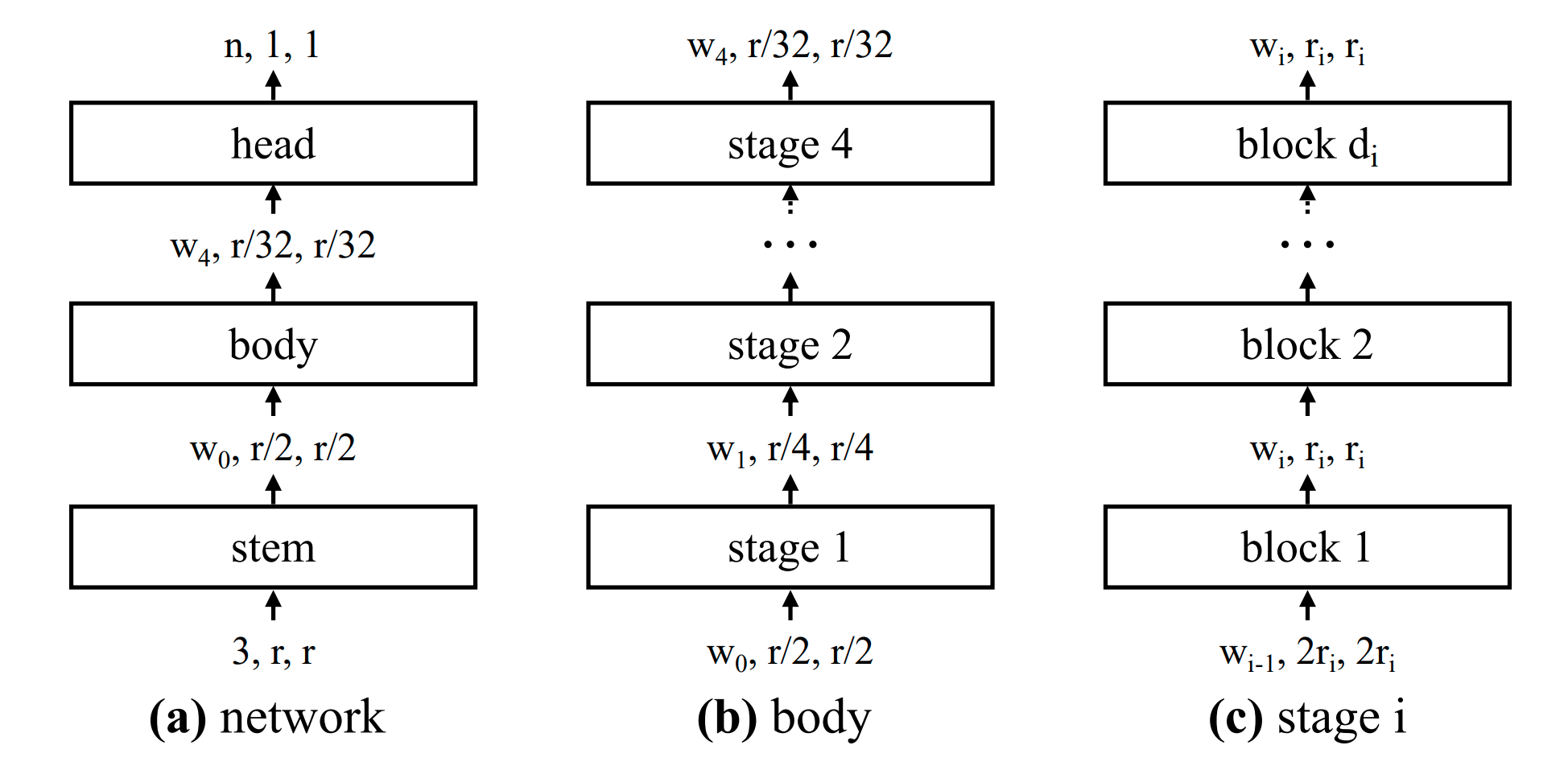RegNet
RegNet model trained on imagenet-1k. It was introduced in the paper Designing Network Design Spaces and first released in this repository.
Disclaimer: The team releasing RegNet did not write a model card for this model so this model card has been written by the Hugging Face team.
Model description
The authors design search spaces to perform Neural Architecture Search (NAS). They first start from a high dimensional search space and iteratively reduce the search space by empirically applying constraints based on the best-performing models sampled by the current search space.
Intended uses & limitations
You can use the raw model for image classification. See the model hub to look for fine-tuned versions on a task that interests you.
How to use
Here is how to use this model:
>>> from transformers import AutoFeatureExtractor, RegNetForImageClassification
>>> import torch
>>> from datasets import load_dataset
>>> dataset = load_dataset("huggingface/cats-image")
>>> image = dataset["test"]["image"][0]
>>> feature_extractor = AutoFeatureExtractor.from_pretrained("zuppif/regnet-y-040")
>>> model = RegNetForImageClassification.from_pretrained("zuppif/regnet-y-040")
>>> inputs = feature_extractor(image, return_tensors="pt")
>>> with torch.no_grad():
... logits = model(**inputs).logits
>>> # model predicts one of the 1000 ImageNet classes
>>> predicted_label = logits.argmax(-1).item()
>>> print(model.config.id2label[predicted_label])
'tabby, tabby cat'
For more code examples, we refer to the documentation.
- Downloads last month
- 198
